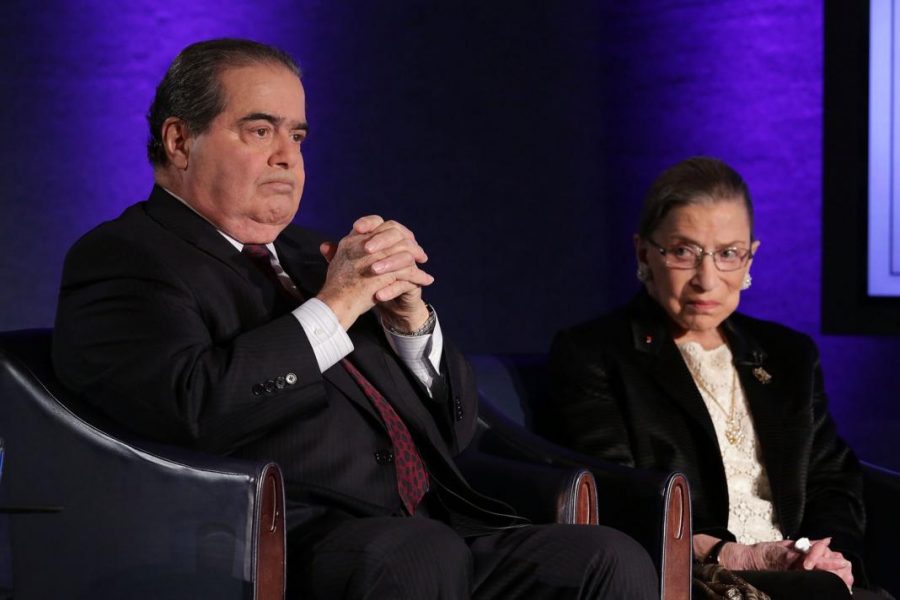If headlines are to be believed, then the United States of America is on the brink of crisis — both culturally and constitutionally. The lack of patience between Americans of differing political ideologies is a common refrain, where cries of foul play and incivility emanate from both sides. Conventional punditry claims that everything is disintegrating more quickly than ever before, due to the fickle evils of partisanship, political correctness and politeness.
In reality, the United States has never enjoyed an era of civility. American identity was full of conflict from the beginning — from the chafing between the Thirteen Colonies, ideological clash over abolition and women’s sufrage and a literal civil war. American history is marked with numbers of people who have been exterminated, enslaved, segregated, interned, neglected and enlisted. The American people have repeatedly endured assassinations, impeachment and scandal involving their Commander in Chief. Yet, despite a legacy of conflict, concerns remain about the specific trajectory of our present moment. While it could be said that we as a people have been worse and could always be better, it appears that many have lost the energy to try.
After nearly three years of reading incessant chatter about “normalization,” alternative facts and the possibility that a “pee-tape” involving the President might exist, I’m not the biggest fan of oversimplified ideas within the media. However, even I concede that it certainly has felt like the long, demoralizing year described in mainstream reporting — a year in which my skillet-fried brain has been overheated on the hot plate of the frenzied 24-hour news cycle and a radioactive White House. The 2016 election coverage strained the already tense relationship that many Americans had with the media, myself included — but I believe that the turmoil they report on is likely felt by all of us.
Political burnout is real, especially for the average person who is reluctant to invite such existential strain into their lives when they are saddled with the more immediate concerns of putting food on their table and keeping the lights on. While it’s natural that Americans feel unsteady and scared, it’s concerning how quickly we opt out of political conversations altogether. I don’t blame anyone for feeling disgusted with the federal government or alienated from their representatives. I do worry when people have stopped talking to their family, neighbors and local representatives. In these partisan times, we risk long-term danger if our ability to persuade erodes away.
That’s not to say that people should abandon their values while speaking with someone across the aisle. Diluting identity should not be a prerequisite for discourse. Whether sitting in the office of a local House Representative or across the table from a family member during Thanksgiving, it’s imperative that conversation is happening, not that people agree. Clearly, there has been a resurgence of neo-Nazis, far-right extremism and anarchists that exist only to debate and dehumanize. They are not to be bothered with — but disengaging completely from family, community leaders and even national representatives is taking the “high road” into hell. Not everyone will walk out of these interactions convinced, but it is through cultivating relationships that people conjure votes, sign ballot initiatives and take the leap into political careers.
I first became convinced of the power of building bipartisan relationships about a year ago. I was one of fifty students who flew out to Kentucky to attend a week of playing politics with peers from across the country, where we were placed in a sort of “baby’s first government” — tasked with building coalitions, writing mock policy and committing ourselves to the concept of compromise. While it’s no surprise that Washington is a gridlocked mess, there is worry that similar behavior is erupting in local governments across the country. In order to counteract this trend, the good people at the Henry Clay Center for Statesmanship invited students to Lexington to train them in the ways of civility. Held in memory of Henry Clay, “The Great Compromiser” himself, the objective of the week was clear.
It’s indisputable that these types of organizations are the result of bipartisan collaboration, that the connections they offer aid in the development of students and that everyone involved is left better off for the relationships they gained. That isn’t to say that the week went without its nasty encounters, but they were expected and fairly inconsequential. To my surprise, the most revealing information of the week was that an astounding number of students at this camp had been trained, employed and recommended by mentors of opposite political parties.
I was there because a mentor of mine was willing to recommend me and ask that I be considered for a position — despite our differences in party affiliation, opinions on issues and voting record. This gesture is important because the presence of this mentor has been meaningful for the nuanced development of my (opposite) political identity, and it communicates that you don’t have to agree with someone to believe they should be included at the table. If we value the future, we must lift up people who are committed to common decency and dialogue, not necessarily common ideology.
If we are worried about, at a bare minimum, maintaining the ability to work together, we need to prioritize our local, personal relationships. Abstract sermonizing about “compromise” understates political identity and the stakes faced by each party as they debate an issue. The fact is, people who identify with a certain ideology often have their reasons for doing so and can’t simply cede that for the vague goal of “getting along.” Simultaneously, sacrificing who one is shouldn’t be a factor in fostering relationships, and people can successfully negotiate without apologizing for their personal values.
Our national sickness lies in our inability to have productive, healthy relationships with the people in our lives whom we adamantly disagree with. The path to healing lies in mutual respect, not mutual consensus. It begins within the orbit of family and friends, mentors and colleagues, and partners and opponents. This balance has existed before, in the relationships between Justices Ruth Bader Ginsburg and Antonin Scalia, Senators John McCain and Ted Kennedy and First Lady Michelle Obama and former President George W. Bush. None of these people have deemed maintaining their ideological integrity and their relationships as an “either-or” decision. Their willingness to bridge the divide brought a path of productivity through the incivility, fatigue and frustration that make many Americans nervous to open their newspapers. It’s up to us to lay the groundwork for similar relationships of our own.


















